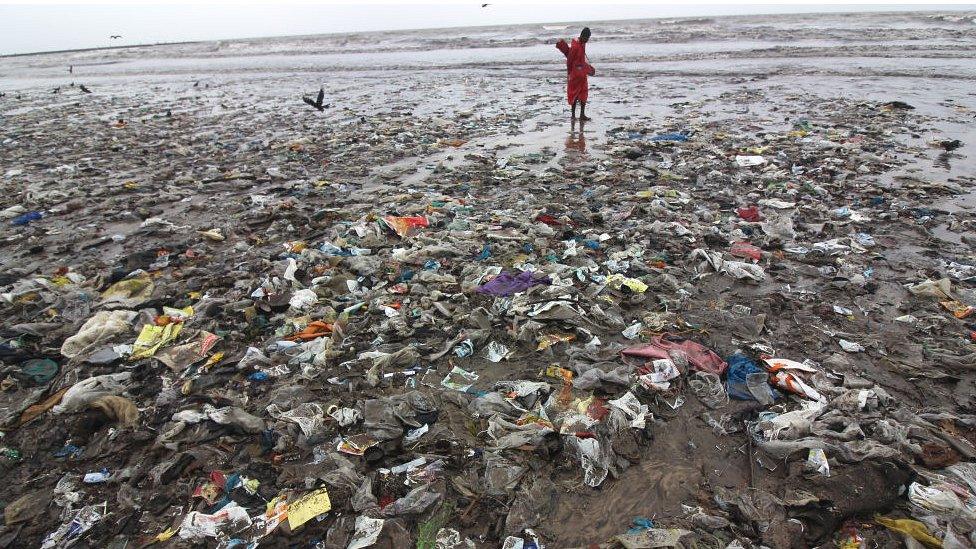Beneath the surface of the Thames lies a graveyard of plastic waste
- Published
- comments
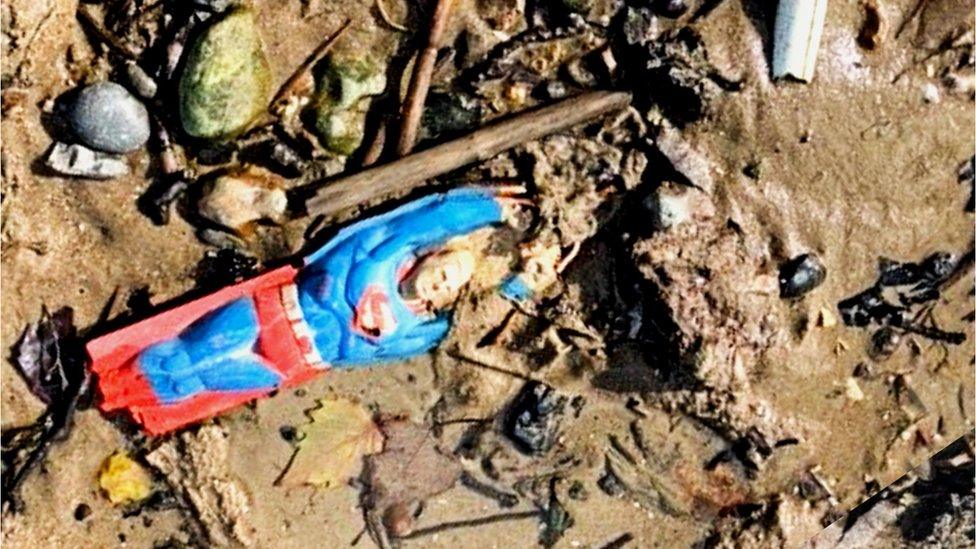
Plastic bottles, sunglasses, cotton buds, wet wipes, food wrappers, cartons - and a Superman - are all visible
We are on the foreshore of the Thames at low tide in Fulham, right next to Fulham FC's home, Craven Cottage.
The water has gone out very quickly and left behind a very dirty secret. Plastic.
There is plastic everywhere.
Plastic bottles, sunglasses, cotton buds, wet wipes, food wrappers and cartons. Everything you could imagine that is made of plastic is here.
That all of this is ending up in the Thames, regarded as London's jewel, is, frankly, disgusting and depressing.
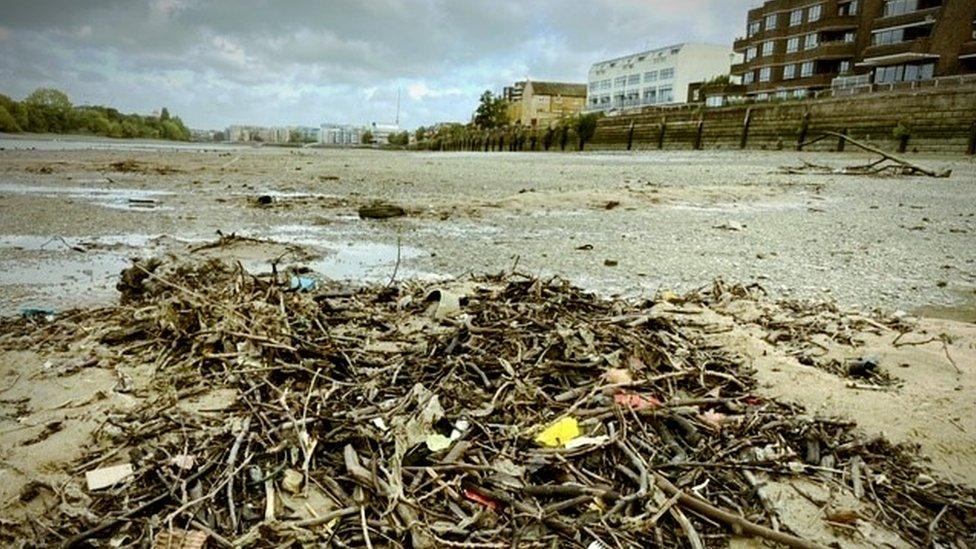
Researchers from local charity Thames21 believe the Thames has the most microplastics of any river in the world
The river dumps its plastic at certain corners and certain bends.
There's 'wet wipe island' at Hammersmith, where the actual bend in the river is being changed by the build up of waste.
In Fulham, it is plastics.
Alarmingly, scientists also think these bits of plastic break down and enter the food chain. Researchers from local charity Thames21 believe the Thames has the most microplastics of any river in the world.
The organisation pulls 200 tonnes of plastic from the Thames every year.
Zara Visanji from Thames21 said macroplastics, or pieces larger than 5mm, are also a serious problem, "although we're not the worst in the world".
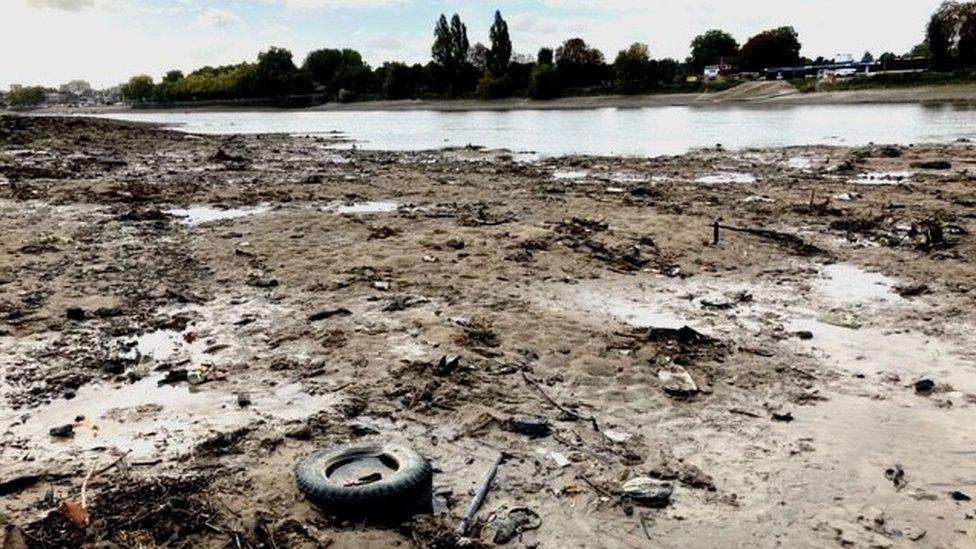
Samples are being collected along the Thames
She is also part of a project called InNoPlastic, funded by the EU, which comes up with ways to remove macro, micro and nano plastics.
"We have been collecting samples at Sunbury-on-Thames, the freshwater side of the River Thames," Zara says.
"And we have found, of all the partners, we have the highest concentration of microplastics," she says, compared with Croatia, Holland and the Venice Lagoon in Italy.
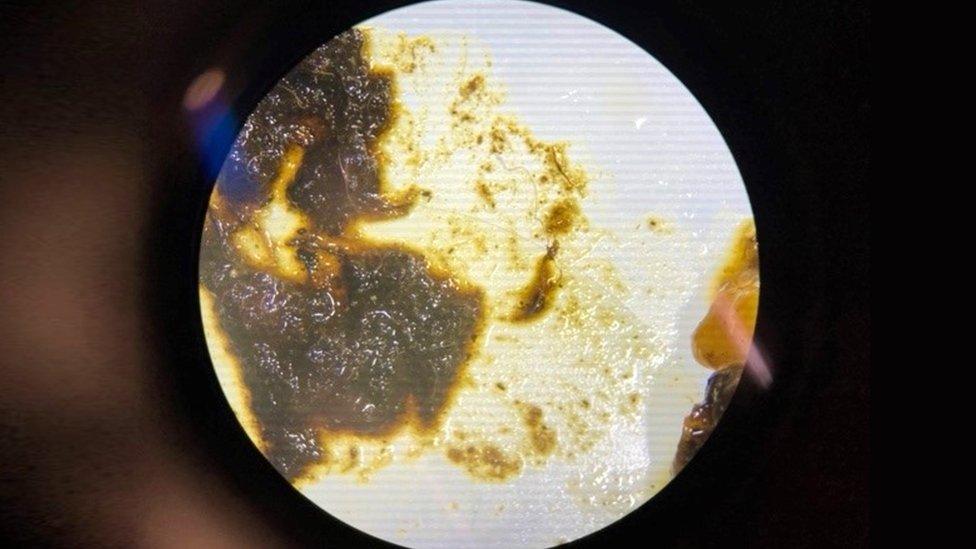
Scientists can examine the digestive tract of snails for plastics
Zara said the entry of plastics into the food chain happened "when fish are swimming along and they are absorbing these microplastics".
"Other animals are eating products that have microplastics in them and then the public population are eating the fish and meat that has microplastics, and it's getting into our blood stream as well."
The next day, I go to Royal Holloway, University of London, in Egham. Prof Dave Morritt has been studying crabs from the Thames for 10 years.
We watch him dissect a mitten crab. Inside, he finds traces of plastic that the crab has eaten. He says the fibres will have almost certainly come from the breakdown of wet wipes.
Prof Morritt says we need behavioural change: "Cutting off plastic at source before it gets into the river is far more effective than trying to clean it up once it's in the environment.
"You can clean up the bigger stuff, but with microplastics it's virtually impossible to get them out once they're there.
"A big part of that is trying to encourage people to change their behaviour."
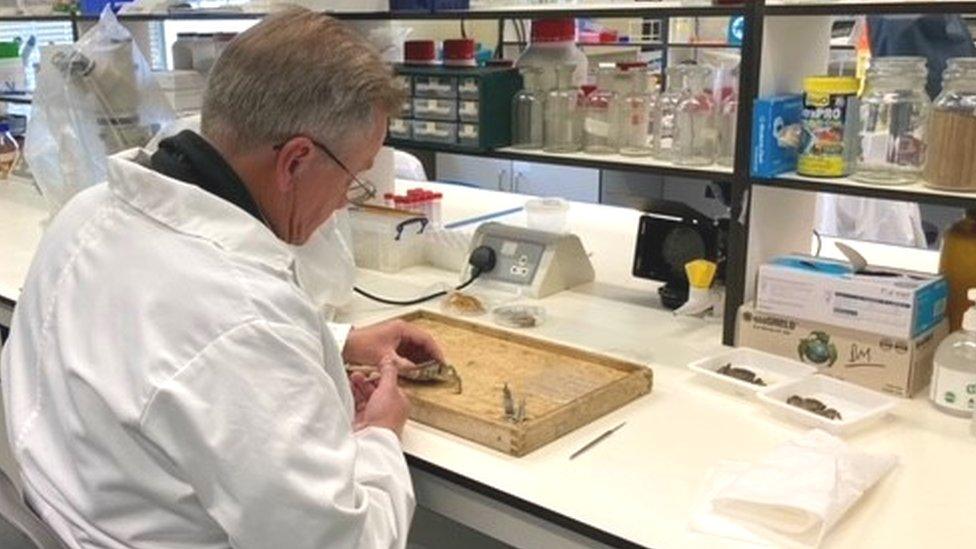
Prof Dave Morritt has been studying Thames crabs - and their innards - for a decade
Thames21 also wants legislation to enforce strict standards on labelling for all single-use wet wipe products containing plastic. At the moment, some wet wipes are labelled as "flushable" when they contain plastic.
It also wants the government to set legally-binding targets to phase out non-essential waste items.
A spokesperson for the Department for Environment, Food and Rural Affairs said: "Through our 25 year environment plan we are committed to leaving the environment in a better state than we inherited it. As part of this work we are bringing in new rules to ensure that we recycle and reuse more of our waste to help tackle plastic pollution.
"Last year we launched a call for evidence on tackling commonly littered single-use plastics such as wet wipes, as well as sachets, cigarette filters and single-use cups.
"We are considering various options for wet wipes - including a ban on those containing plastic, a mandatory 'flushability' standard, mandatory labelling on packaging, and an extended producer responsibility scheme for wipes containing plastic."
It will be a huge challenge to reduce London's reliance on plastic and improve its disposal. Everyone can help by not flushing wet wipes and cotton buds.
At the moment, below the surface of the Thames lies a plastic dumping ground.

Follow BBC London on Facebook, external, Twitter , externaland Instagram, external. Send your story ideas to hellobbclondon@bbc.co.uk, external
- Published11 June 2021
